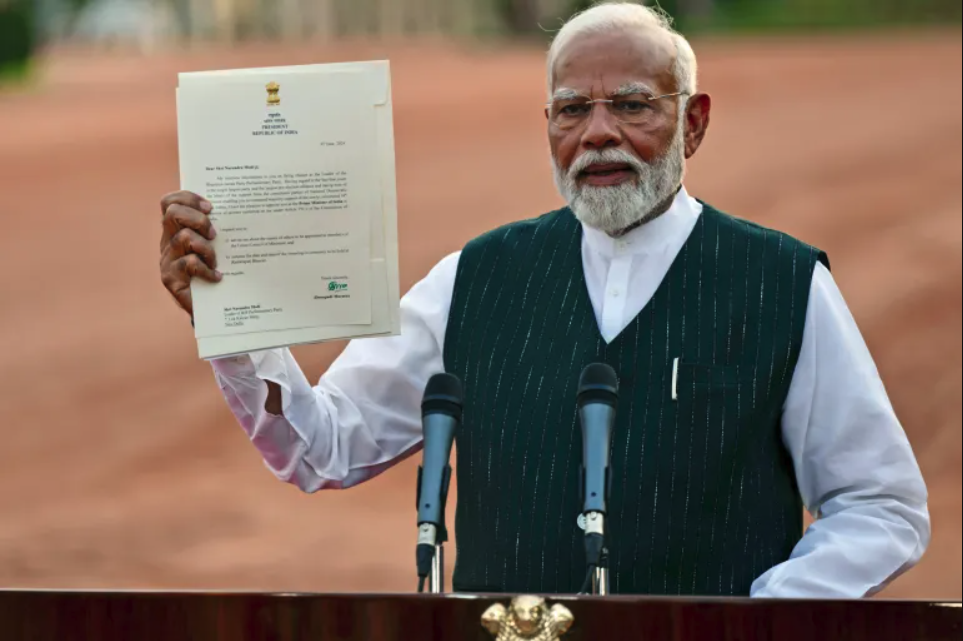
Published 06/09/2024 11:00 | Edited 06/09/2024 11:01

Narendra Modi will be sworn in as India’s prime minister for a historic third term this Sunday (9), with the leaders of neighbouring countries including Bangladesh, Sri Lanka, Bhutan, Nepal and the Maldives in attendance. However, the Bharatiya Janata Party’s (PBJ) victory with 640 million votes in the world’s largest general election was not as impressive as expected, resulting in a significant reliance on allies to maintain a majority in parliament.
The PBJ’s low-key win is seen by many as a sign of reform. It seems people have chosen the opposition, not the government, when they voted this time. The talk on the streets and in offices is that this is what India really needs. Despite the Modi government’s economic success, its authoritarianism, especially against Muslims, is on the rise. Muslim activists celebrated the result and hoped that the PBJ’s loss of mandate would serve as a limit to its arrogance.
Compared to 303 seats in 2019, the BJP won 240 seats, which is short of the required majority of 272 in the Lok Sabha, the lower house of the Indian Parliament, which has 543 seats. With the support of its allies in the National Democratic Alliance (NDA), the PBJ won 293 seats. The Indian opposition coalition led by Rahul Gandhi’s Indian National Congress won 232 seats, with the Congress alone getting 99 seats, a significant increase compared to 2019.
Formation of a new government
About 30 prospective ministers will also be sworn in, including representatives from the PBJ’s biggest allies, the Telugu Desam Party (PTD) and the Janata Dal (United), who have already made tough demands from the BJP such as key Cabinet posts and a programme of common governance. The two are parties that say they have a strong Muslim support base, although these populations have no representation in the Lok Sabha. Reports indicate that the most powerful ministries – home, foreign affairs, finance and defence – will remain under the control of the PBJ.
Janata Dal MP Lallan Singh commented on the cabinet configuration: “Narendra Modi and Bihar Chief Minister Nitish Kumar have expressed their trust in me and I will try to live up to their expectations. We do not demand any ministry, it is the Prime Minister’s right to choose it.” [ministros],
The BJP says the third term will be peaceful. “These are baseless and misguided fears,” said PBJ national spokesperson Zafar Islam. “Everyone in the NDA has faith in the leadership of Prime Minister Modi.”
challenges ahead
Despite his foreign policy achievements, Modi faces significant challenges, particularly with China, and relations with Canada have also soured following allegations of Indian involvement in a plot to assassinate a Sikh separatist following a 2020 border clash.
Unemployment was a central issue during the election campaign. India’s unemployment rate rose to 8.1% in April, reflecting discontent over a lack of jobs and inflation. Congress accused the PBJ government of not doing enough to create employment opportunities.
Analysts suggest that reliance on allies could act as a check on Modi, preventing him from ruling unilaterally like in his last term. However, they point out that it would be foolish to think that the election solved the crisis of hate in Indian society.
Modi, who will become the second Indian leader to return to power after a third consecutive election, faces an uncertain future. Cooperation with allies will be essential to ensure the stability of your government and to deal with the internal and external challenges facing India.



